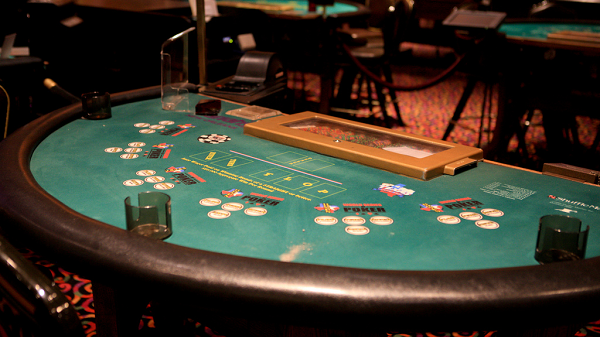The city of New Orleans implemented a full ban on smoking in bars, restaurants, casinos, and other public spaces in April of 2014.
The purpose of the law was to extend existing statewide smoking bans within the city limits. The new law means it is illegal to smoke within five feet of everything from public parks to colleges and even the city’s jails and prisons.
The use of e-cigarettes and vaporizers is also considered smoking. So that’s banned too.
How do the operators of gambling venues in New Orleans feel about it?
They’re upset.
The Louisiana State Police, which oversees gambling in Louisiana, predicted that the state could lose $104 million in tax revenue and fees from the implementation of this ban. That number came from the Gaming Enforcement Commission’s notes on a study done on smoking bans in Atlantic City and Delaware gaming properties.
That study, which you can read as a PDF file here, accurately predicted a 12% decrease in revenue for the state of Delaware after a smoking ban in gambling halls in that state. Another arm of that study predicted a huge decrease of 20% in Atlantic City’s profits across a two-year period after a smoking ban in South Jersey, though that prediction hasn’t been tested yet.
Their argument is simple enough. As the New Orleans advocate puts it, “[Casinos, restaurants, and bars] argue that tourists come to New Orleans because they like to gamble and drink. The city is one of the last to allow smoking in some public places.” To take that away will change people’s attitude about New Orleans.
How many will simply decide not to come back?
What have they done about it?
Opponents of the ban have been active.
First, Harrah’s tried to delay the ban, claiming they needed more time to help their employees and customers adjust to the new rules. New Orleans City Council saw through that smokescreen (pun totally intended), shaming Harrah’s for trying to amend city law to benefit their own interests. For their part, Harrah’s is currently involving New Orleans in a difficult and costly lease renegotiation which has to be seen as an attempt at revenge on the part of the casino.
What Harrah’s did next was brilliant. Before the ban went into effect, the property made a huge show of becoming “the first smoke-free casino in Louisiana.” At midnight two days before the ban went into effect, they ceremonially removed ashtrays, handed out lollipops for frustrated smokers, and made a big to-do of their early adoption.
It was a brilliant move because they were planning a counter-attack the entire time.
Next, Harrah’s joined forces with many other local businesses affected by the ban and filed a lawsuit in civil court to strike it down. This action was more effective. It included several large local businesses (including Pat O Brien’s, Broussard’s, and several other New Orleans landmarks) and focused on the potential loss of revenue facing the city.
The hearing was scheduled for May 21. That lease negotiation Harrah’s is forcing on the city? It could cost New Orleans anywhere from $4 – $30 million dollars, which Harrah’s says is the cost of forcing the smoking ban on their successful gaming enterprise.
Who benefits from the New Orleans smoking ban?
I’m cynical, but not too cynical. This might smarmy, too.
I’m okay with that.
Here’s who benefits from the New Orleans smoking ban:
The people who visit bars, hotels, restaurants, casinos, and other public spaces all benefit.
We know secondhand smoke is dangerous. The American Cancer Society says secondhand smoke kills 42,000 people a year. It’s bad and you probably agree that it should be banned, unless you’re a libertarian or anarchist or something.
But beyond that – people these days don’t like to go places where smoking takes place. Times have changed – gone are the days when going home from your waitressing job smelling like a cigarette was no big deal because everybody smoked. These days, fewer people smoke, and the ones who don’t simply don’t want to be around it.
City Council Member Latoya Cantrell, who sponsored the law and has been vocal about her support for it, points out that secondhand smoke exposure costs the state millions of dollars a year in healthcare costs. That’s another angle to consider. It might be fiscally irresponsible to continue to allow smoking in public, at least according to the ban’s proponents.
So what’s going to happen?
Harrah’s is trying to put its money where its mouth is, threatening to shrink its state-mandated work force from 2,400 to 1,500. They’ve got legislation under consideration which would allow them to do just that.
With pressure on the city council from judges more than ready to rule in favor of existing liberties, it’s not totally clear that the city will be able to maintain the ban as it exists now.
Bartenders and business owners continue to make the same point – you’ll read it in this article from VICE and in this from the Guardian. What is going to happen when neighboring businesses get sick of the smokers pouring out of bars, casinos, and restaurants every few minutes? That seems to be the real threat to shop owners concerned about their customers getting up and leaving to satisfy their nicotine habit.
If I had to make a prediction, I’d say that the ban is here to stay. I can’t find a single example of a city getting rid of a smoking ban once it’s been put in place. It just doesn’t happen. As for how the city will be affected, I’d predict that Harrah’s is going to continue making a stink until they earn an exemption from the New Orleans City Council.
That means the city will rule in favor of the civil rights of customers at a single business. That will be a weird day, indeed.

 MENU
MENU















